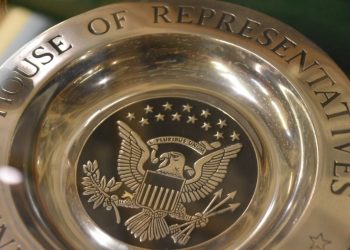RISMEDIA, May 8, 2010—Now that the home buyer tax credit has expired, real estate professionals across the country are taking a step back and gauging how big of an impact it had on the fragile real estate market. Here, Earl Lee, President, Prudential Real Estate and Relocation Services discusses the impact of the home buyer tax credit and what the real estate industry has to look forward to now that the credit has expired.
 Earl Lee
Earl Lee
President
Prudential Real Estate and Relocation Services
www.prudential.com/realestate
Last fall in Viewpoints, I urged for the extension of the first-time home buyer tax credit to help sustain the gradual recovery building in residential real estate. Congress in November acted responsibly and not only extended the tax credit but added an additional tax credit for move-up home buyers; both expired April 30.
Tax credits, important extensions of the American Recovery and Reinvestment Act of 2009, made timely impacts on U.S. real estate. First-time home buyers accounted for roughly half of home sales last year, well above historic levels. These consumers were motivated by the first-time home buyer tax credit—up to $8,000 or 10% of a principal residence’s purchase price—in combination with historically low interest rates and lower home prices in many markets.
Likewise, consumers capitalized on the move-up tax credit—equating to as much as $6,500 or 10% of a principal residence’s purchase price—fueling additional sales through April in many of the country’s midrange markets. At press time, brokers coast-to-coast were sizing up how much of their business was sparked by the tax credits and what impact the credits’ expiration will have on business going forward.
I believe the tax credits played a critical role as the U.S. economy and residential real estate struggled for balance. Their availability helped jumpstart a residential real estate engine that continues idling today. They helped our industry bridge a tenuous time when consumer confidence was low and housing inventory was quite high.
Given the choice, many in real estate (including me) would like to see the tax credits extended for another quarter. However, there’s a growing sense that post-tax-credit business declines will be mitigated near term by home sales sparked in the recovering economy.
Unemployment held steady in March for the third consecutive month with payrolls expanding in manufacturing, health care and other industries. Factory orders rose in February for the 10th time in 11 months. We also witnessed early-spring upticks in consumer confidence and personal consumption, according to the Conference Board and Commerce Department.
Wall Street is showing confidence in the current economic environment, as the Dow Jones Industrial Average in mid-April stood more than 1,000 points, or 10%, above its early February low.
Home prices? They tallied their eighth-consecutive monthly rise as measured by the Standard & Poor’s/Case-Shiller 20-city home price index in late March.
Since all real estate is local, I surveyed several Prudential Real Estate Network affiliates around the country for their post-tax-credit perspectives.
Dan Forsman, president and CEO of Prudential Georgia Realty, Roswell, Georgia, said he’s “cautiously optimistic” that the sales momentum his company generated during the first quarter will continue.
Broker Jay Christiana, of Prudential Manor Homes, Realtors in Albany, New York, said the first-time home buyer tax credit helped fuel sales gains at his company during 2009’s second and third quarters.
Transactions continued climbing through the first quarter, Christiana added, with particular strength in second homes—a market segment impacted little by tax-credit expirations.
Kevin Kirkpatrick, president of Prudential Indiana Realty Group in Indianapolis, reported that first-quarter home sales at his company rose 13% vs. the same period a year ago, spurred in part by tax-credit appeal. Though Kirkpatrick expressed concern that tax credits are no longer available to his clients, market fundamentals in greater Indianapolis point to continued recovery, he said.
Broker Mark Woodroof, Prudential Gary Greene Realtors, said sales volume at his Houston-based company grew appreciably last fall in advance of the initial first-time home buyer tax credit expiration. Volume eased during the November-January period, Woodruff added. “I think we’ll see some of the same this time around,” he said. “Our March and April are better than expected, while May, June and July might be slightly less than we expected with softening in our entry-level to move-up markets.”
Woodroof, similar to the other Prudential Real Estate brokers I surveyed, anticipates growth in 2010.
It should be a better year for our industry, assuming unemployment improves with a firming economy, corporate investors step in to replace the Federal Reserve as buyers of mortgage-backed securities, and troubled housing assets and mortgage-loan resets don’t swamp the recovering market and consumers.










